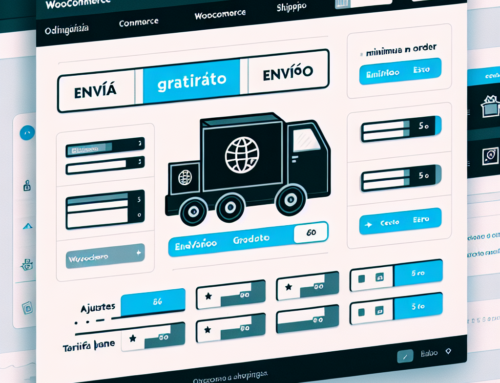In today’s fast-paced world, website speed is more important than ever. If your website loads slowly, visitors are more likely to click away, which can hurt your search engine rankings and your bottom line.
There are a number of things you can do to optimize your web page speed, including:
-
Choose a fast web host. Your web host is the company that stores your website’s files and makes them available to visitors. A slow web host can significantly impact your page load times. Choose a web host that is known for its speed and reliability.
-
Use a content delivery network (CDN). A CDN is a network of servers that distribute your website’s content to visitors around the world. This can help to improve page load times for visitors who are located far from your web host.
-
Optimize your images. Images are often the largest files on a web page, and they can significantly impact page load times. Optimize your images by compressing them and using appropriate file formats.
-
Minify your code. Minifying your code can remove unnecessary whitespace and comments, which can make your pages load faster.
-
Leverage browser caching. Browser caching allows visitors to store your website’s files on their computers, so they don’t have to download them again each time they visit. Leverage browser caching by setting appropriate cache headers.
-
Use a caching plugin. A caching plugin can help to cache your website’s pages and content, which can further improve page load times.
-
Test your website speed. There are a number of tools available for testing your website speed. Use these tools to identify areas where you can improve.
-
Keep your website up to date. Make sure your website’s software and plugins are up to date. Updates often include performance improvements.
-
Use a lightweight theme. Your website’s theme can also impact page load times. Choose a lightweight theme that is designed for speed.
-
Delete unnecessary plugins. Each plugin you add to your website can add some overhead. Delete any plugins that you are not using.
By following these tips, you can optimize your web page speed and improve your website’s performance. This will lead to a better user experience and can also help to improve your search engine rankings.
Here are some additional tips for optimizing your web page speed:
- Use a font that is easy to read and loads quickly.
- Use CSS sprites to combine multiple images into a single file.
- Avoid using too many redirects.
- Make sure your website is mobile-friendly.
- Get rid of broken links.
Optimizing your web page speed is an ongoing process. However, by following these tips, you can make a significant difference in your website’s performance.







Another very important point on SEO is the optimization and compression of images on the site.
Here is an interesting article on this topic:
https://optipic.io/en/blog/images-seo-optimization/
Ensuring the security of your residence is paramount in today’s unpredictable times. One of the top ways to secure your belongings and sense of security is by committing in a reliable safe. Regardless of whether you’re safeguarding funds, crucial records, or treasured heirlooms, a safe provides an assured vault solution.
In terms of choosing the right safe for your house, there are several aspects to take into consideration. Above all, assess your safety requirements. Determine what belongings you plan to store in the safe and the extent of safety required for every item.
Following that, think about the capacity and positioning of the safe. Select a safe that fits easily in your house while supplying adequate storage for your belongings. Guarantee that the safe can be placed in a secure area, for instance bolted to the floor or wall.
Moreover, look into the safety measures of the safe. Search for features such as sturdy construction, dependable locking mechanisms, and flame-resistant materials. Take into account committing in a safe with added security features, for instance biometric thumbprint scanners or digital keypads.
Finally, keep in mind to consider your budget when picking a safe. Establish a practical budget based on your security needs and compare prices for alternatives that match within your financial constraints.
To conclude, picking the right safe for your home is vital for keeping your belongings secure. By assessing your protection necessities, taking into account the size and location of the safe, examining protective elements, and establishing a spending limit, you can guarantee ultimate protection for your important possessions.
[url=Customizable residential safes showroom Scottsdale]https://mercurylock.com/about[/url]
Securing the security of your house is paramount in today’s unpredictable times. One of the top ways to secure your assets and peace of mind is by committing in a reliable safe. Whether you’re safeguarding funds, vital paperwork, or valuable heirlooms, a safe gives a secure storage solution.
When it comes to choosing the right safe for your residence, there are numerous elements to consider. Primarily, evaluate your safety requirements. Decide what possessions you expect to keep in the safe and the extent of security required for each and every item.
Following that, consider the dimensions and location of the safe. Select a safe that matches easily in your residence while supplying ample storage for your belongings. Guarantee that the safe can be installed in a safe spot, such as screwed to the floor or wall.
Furthermore, examine the protective elements of the safe. Search for attributes such as solid construction, dependable locking mechanisms, and flame-resistant materials. Take into account investing in a safe with added security features, such as for instance biometric fingerprint scanners or electronic keypads.
Lastly, keep in mind to consider your budget when selecting a safe. Establish a practical budget based on your safety requirements and compare prices for options that match within your financial constraints.
To conclude, choosing the right safe for your house is vital for preserving your belongings secure. By assessing your protection necessities, taking into account the size and location of the safe, inspecting safety measures, and fixing a budget, you can guarantee ultimate protection for your important possessions.
[url=Scottsdale showroom for fireproof safes with drawers]https://mercurylock.com/contact[/url]
Securing the protection of your home is paramount in today’s uncertain times. One of the top ways to secure your belongings and sense of security is by putting resources in a trustworthy safe. Regardless of whether you’re safeguarding funds, important documents, or treasured heirlooms, a safe gives a protected storage solution.
Regarding picking the suitable safe for your house, there are many elements to take into consideration. First and foremost, consider your protection necessities. Determine what possessions you expect to keep in the safe and the degree of safety required for every item.
Next, consider the dimensions and positioning of the safe. Opt for a safe that fits conveniently in your home while offering adequate space for your assets. Guarantee that the safe can be mounted in a secure area, such as for instance screwed to the floor or wall.
Furthermore, examine the security features of the safe. Seek out features such as strong construction, reliable locking mechanisms, and fire-resistant materials. Consider putting resources in a safe with extra safety features, such as biometric fingerprint scanners or electronic keypads.
Finally, keep in mind to factor in your budget when picking a safe. Set a reasonable budget based on your security needs and shop around for alternatives that match within your budgetary constraints.
In conclusion, selecting the right safe for your house is vital for preserving your assets secure. By assessing your security needs, taking into account the capacity and location of the safe, looking into security features, and establishing a spending limit, you can ensure ultimate protection for your important possessions.
[url=High-security weapon safes with electric locks in Scottsdale]https://mercurylock.com/access-control[/url]